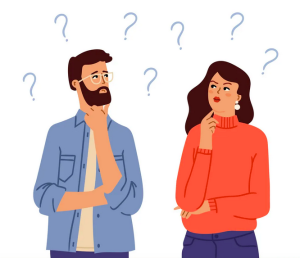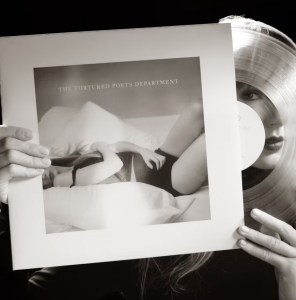Anxiety comes in all shapes and sizes. For some people, they experience butterflies in their stomach, others feel their heart racing or tightness in their chest. Some people feel like they are frozen, or they are stuck inside their head and can’t stop thinking about the worst case scenario.
However, anxiety is not always a bad thing. It can help us perform in some scenarios, like before a big test, game or event. Anxiety can help to keep us safe and protect us from harm. For example, if we are hiking on a mountain and we see a bear, our fight or flight response will kick in. We may feel our heart rate increase, adrenaline pumping through our bodies, our vision feels sharper, breaths feel shallow. This is our body preparing us to face a dangerous situation. Sometimes, people feel this way when they are going to the grocery store, going to school, going to dinner with friends, or talking with a coworker. We live in a world with lots of external pressures, stressors and unknowns. If anxiety feels like it is taking over, preventing you from doing the things you want to do or affecting your functioning it may be time to seek professional help.
How do I know if the anxiety I’m feeling is “normal” or not?
When worries feel out of control, or when you feel your body physically reacting to something that is not actually a threat it can be a sign that anxiety is affecting you and your quality of life. Anxiety can manifest as irritability, muscle tension, fatigue, difficulty concentrating, restlessness, or sleep disturbance. If anxious thoughts, excessive worry or physical symptoms are happening on a daily basis, consistently, and affecting your ability to do things or participate in activities, it may be a sign that therapy, medication or another intervention could help.
How can I treat anxiety?
Treatment is not a one-size-fits-all approach. Many people benefit from a combination of medication plus therapy to treat anxiety. Medication can be a helpful tool in reducing levels of anxiety so that a patient is able to utilize their coping skills and participate in therapy.
Treatment modalities that can be helpful in treating anxiety include:
- Medication: talk with a Psychiatrist or a Psychiatric Nurse Practitioner to learn about medication options
- Cognitive behavioral therapy: What is cognitive behavioral therapy?
- Talk with a Psychologist or a Therapist about coping skills that you can use to reduce anxiety
- Meditation: there are many guided meditations that can be found on Youtube like this one: 10-Minute Meditation For Anxiety, as well as free meditation apps you can download on your smartphone including the Healthy Minds App, Smiling Minds App, Insight Timer App to name a few
- Yoga: Yoga with Adrienne has free Youtube Videos that include yoga classes focused on reducing stress and anxiety Yoga For Anxiety and Stress
- Physical exercise: How exercise can help anxiety
- Acupuncture: Information about how acupuncture can help anxiety
- Breathing exercises: Calm – Breathe, Breathing Exercises for Kids + Teens
What should I do now?
Talk with your doctor, primary care provider, therapist, school counselor, parent or friend about seeking help for anxiety. In some cases it may be necessary to seek care from a psychiatrist or psychiatric nurse practitioner for medication management.




